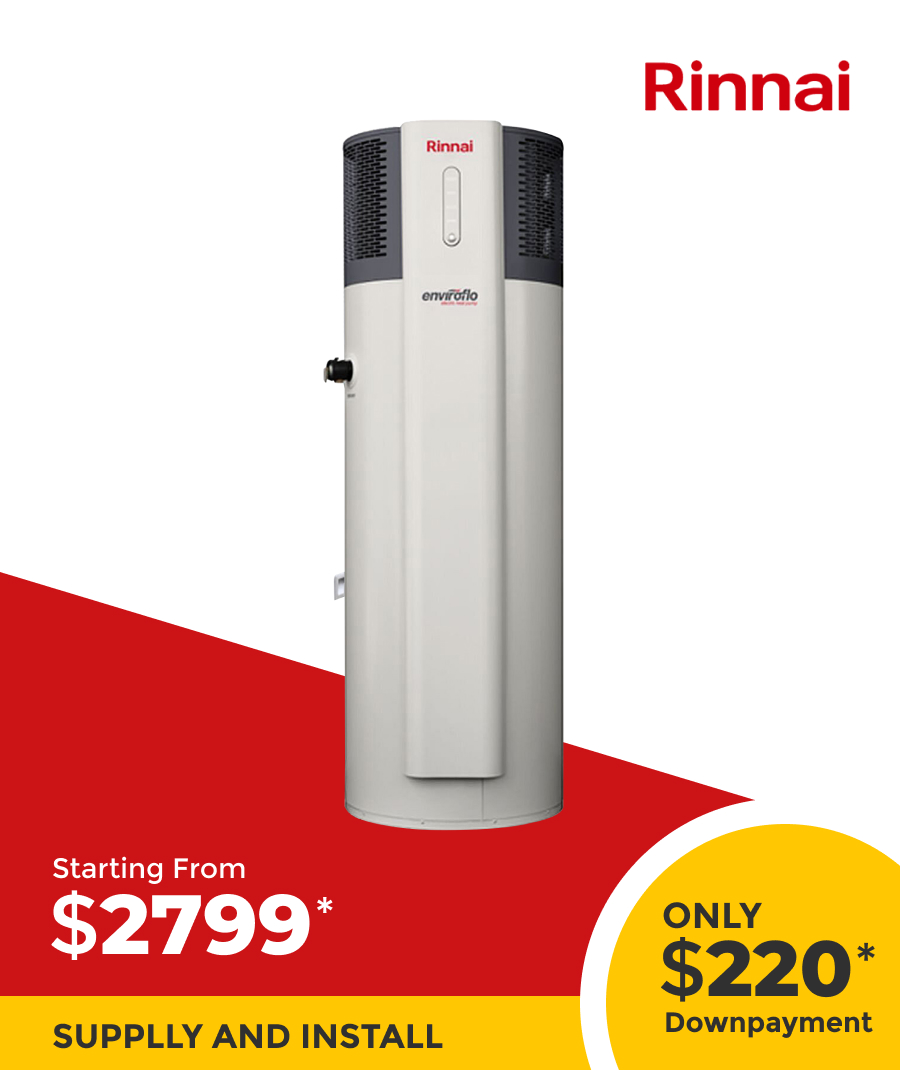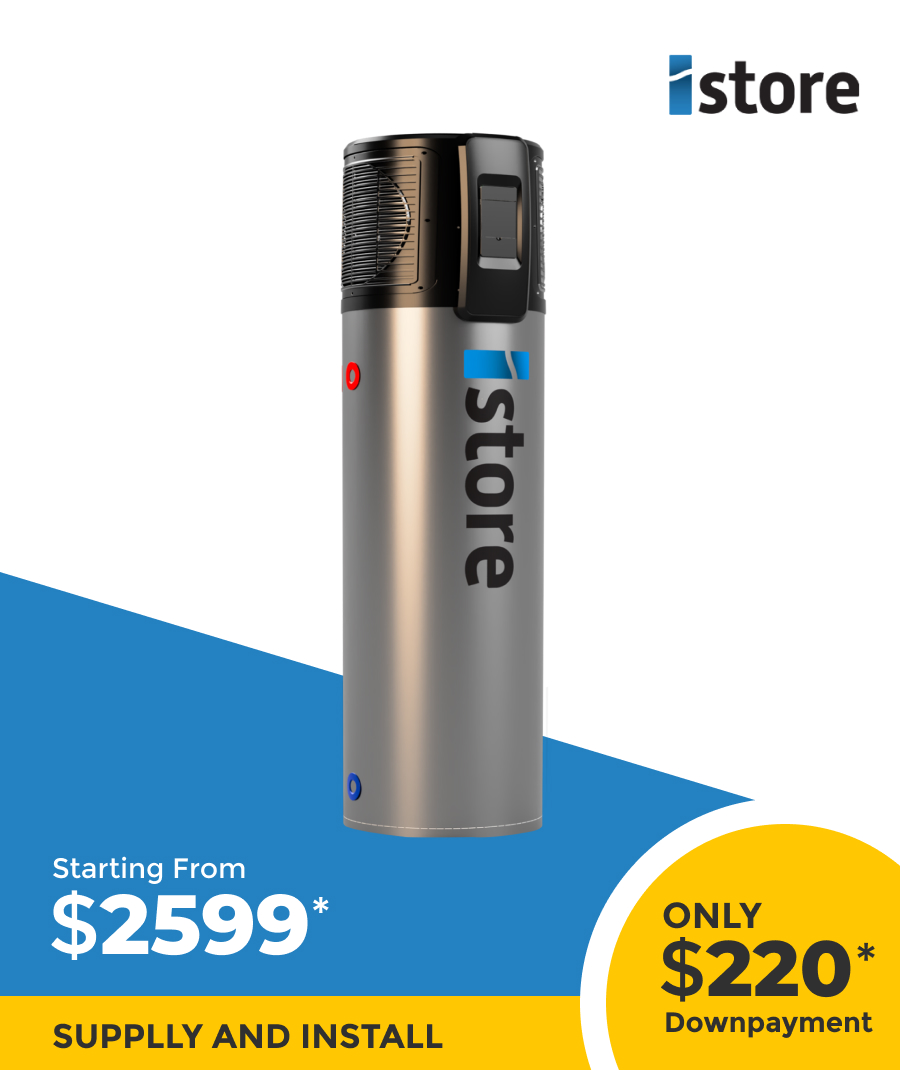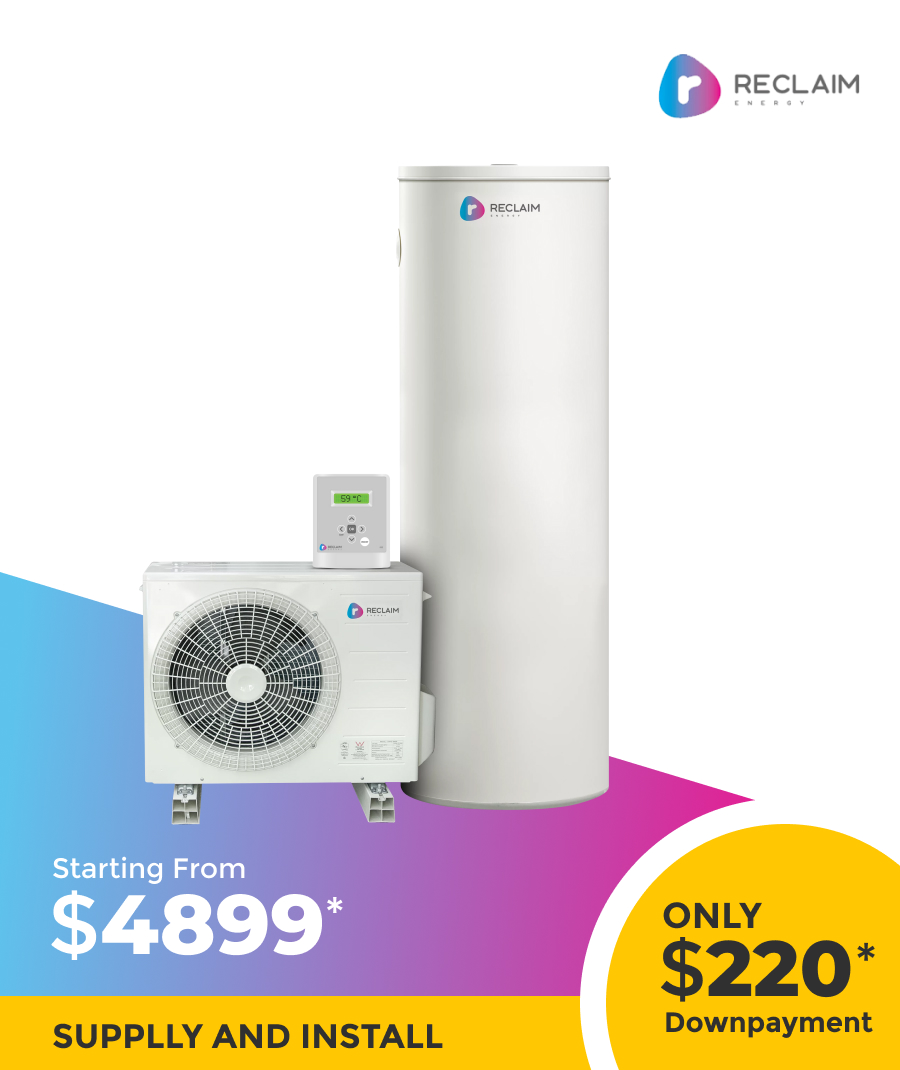Heat pumps are the modern trend in hot water heating, offering an energy-efficient alternative to traditional systems.
These new hot water solutions are becoming a darling for many Australian homeowners, thanks to their ability to deliver reliable hot water while cutting down on energy use and household running costs.
Despite their undisputable benefits, some Aussies need answers to various heat pump hot water FAQs.
We understand your concern, as these units are relatively new in the market.
We have thus compiled a list of frequently asked questions to help you better understand every detail regarding how heat pump hot water systems work and how they are a game-changer in hot water heating.
How does a heat pump hot water system work?
Heat pump hot water systems utilize the ambient air’s thermal energy to heat the water. The system consists of an outdoor unit that extracts heat from the air and transfers it to the water tank indoors. This process is highly efficient and consumes less electricity compared to traditional water heaters.
Are heat pump hot water systems suitable for cold climates?
Yes, heat pump hot water systems are designed to function effectively even in colder climates. Advanced technology allows these systems to extract heat from the air, even at low temperatures, ensuring a reliable supply of hot water throughout the year.
How long does a heat pump hot water system last?
Heat pump hot water systems are built to last, with an average lifespan of 10-15 years. Regular maintenance and proper care can help extend the system’s lifespan and ensure optimal performance.
Are heat pump hot water systems noisy?
Heat pump hot water systems are designed to operate quietly, ensuring minimal noise disruption in both residential and commercial settings. The latest models feature advanced noise reduction technology, ensuring a peaceful environment.
How does altitude influence a heat pump’s efficiency?
With an increase in altitude, the air becomes thinner, reducing accessible heat. Heat pumps may experience a decrease in efficiency due to this factor. It’s recommended that you speak with a manufacturer for ideal operating conditions.
What happens to a heat pump during blackouts?
Like all electrical appliances, heat pumps stop working during power failures. Be prepared for emergencies through contingency plans, including portable generators.
Does the water tank volume influence heat pump performance?
The tank size must correspond to the heat pump’s capacity to guarantee effective heat transfer and quick recovery times.
Can a heat pump water heater chill my residence?
Although it releases cool air as a byproduct, its primary function isn’t cooling; it contributes minimally to reducing room temperatures nearby.
What role does water quality play in a heat pump water heater?
Hard water can cause mineral deposits, affecting system efficiency. Water softeners or descale treatments may be required in regions with hard water supplies.
How can I determine if my heat pump water heater operates optimally?
Regular checks involve verifying water temperature, listening for abnormal sounds, and monitoring utility bills for inconsistencies.
Are miniature heat pump water heaters compatible with confined spaces?
Indeed, compact models cater to smaller dwellings like apartments or small homes.
Which temperature setting is recommended for a heat pump water heater?
Balancing comfort and efficiency, aim for approximately 120°F (49°C).
In what manner does a heat pump water heater alter indoor humidity?
Minor reductions in indoor humidity occur because heat pumps absorb moisture from the air during operation.
What sound suppression methods are available for heat pump water heaters?
Select models with built-in features like noise-dampening technologies, or install the unit in quieter environments.
Do distinct refrigerant varieties exist, and how significant is the difference?
Refrigerants differ, and selecting environmentally friendly choices, such as R-410A, reduces ecological footprints.
What is the backup heating mechanism in a heat pump water heater?
Most designs incorporate electric resistance heaters as standby sources to ensure continuous hot water supply during peak demands or suboptimal heat pump functionality.
Can users manage heat pump water heaters remotely?
Modern models frequently offer smart controls enabling remote adjustments and real-time performance tracking through mobile applications.
What constitutes a heat pump hot water system?
Heat pump hot water systems draw warmth from the atmosphere and transmit it to stored water containers, offering substantial energy savings compared to traditional electric systems (approximately 70%).
How does the heat pump hot water system work?
Operating similarly to refrigeration systems yet reversed, heat pumps extract heat from the air, convert it into gas, and transfer that thermal energy to water storage vessels.
What are the Approximate decibel levels of heat pump compressors?
Compressors within heat pumps generate varying degrees of noise. Consider noise levels (measured in decibels) during installation planning. For comparison, 40 dBA equals a hushed conversation, whereas 60 dBA represents normal conversational speech volumes.
What is the Seasonal Coefficient of Performance (COP)?
COP quantifies efficiency. Higher values indicate superior performance. Be cautious when comparing models, as manufacturers evaluate COP under diverse ambient temperatures.
What are the key factors influencing heat pump installation?
Consideration includes selection between integrated and split systems, appropriate sizing relative to household requirements, and professional installation to secure warranties and maximum efficiency.
Does the Australian government get subsidies for implementing heat pump systems?
Yes, incentives like Small-Scale Technology Certificates (STCs) enable partial recovery of costs associated with acquiring and installing heat pump hot water systems.
How do heat pump systems adapt across Australian climate zones?
Generally applicable to most Australian climates, though efficiencies can fluctuate depending on ambient temperatures. Heat pumps excel in moderate-to-warm environments but may necessitate supplementary electric elements during colder periods to maintain optimal performance.
What is the average longevity of a heat pump hot water system?
Typical life expectancy ranges from 10 to 15 years, although specific models and usage patterns can significantly impact durability.
How often should I get my heat pump water heater maintained?
For best results, plan for an inspection every year or two. This ensures your system stays efficient, extends its lifespan, and catches any developing issues before they become major problems.
Is it possible for a heat pump water heater to provide both home hot water and pool heating?
Absolutely! Some heat pumps offer dual functionality, enabling them to generate hot water for homes and heat swimming pools concurrently under suitable circumstances.
What precautions must I take before draining my heat pump water heater?
Always wait until the system has cooled, refer to the user manual, and implement protective measures against scalding accidents.
Does harsh weather influence heat pump and water heater efficiency?
Yes, extreme temperature fluctuations, hot or cold, can hinder heat pump operation, sometimes necessitating auxiliary electrical support or backup heating methods.
Which indicators reveal it’s time to swap out my heat pump water heater?
Consider replacement if there’s a noticeable drop in performance, frequent repair needs, unusually high energy bills, or aging components past their average service life.
Why is using a timer helpful with a heat pump water heater?
By programming heating schedules, timers save energy by preventing excess usage outside of their allocated hours.
How can I ascertain a heat pump water heater’s energy efficiency?
Look for Energy Star certification; it supplies trustworthy information to assist buyers in making wise purchasing choices.
Are heat pump water heaters susceptible to frost damage?
Preventive measures such as adequate insulation and winterization safeguard heat pump water heaters against freezing temperatures and ensuing damage.
What advantages arise from linking rainwater gathering and heat pump water heating systems?
Combining these setups lets you tap into collected rainwater for various applications, thus conserving essential resources and decreasing total water consumption.



